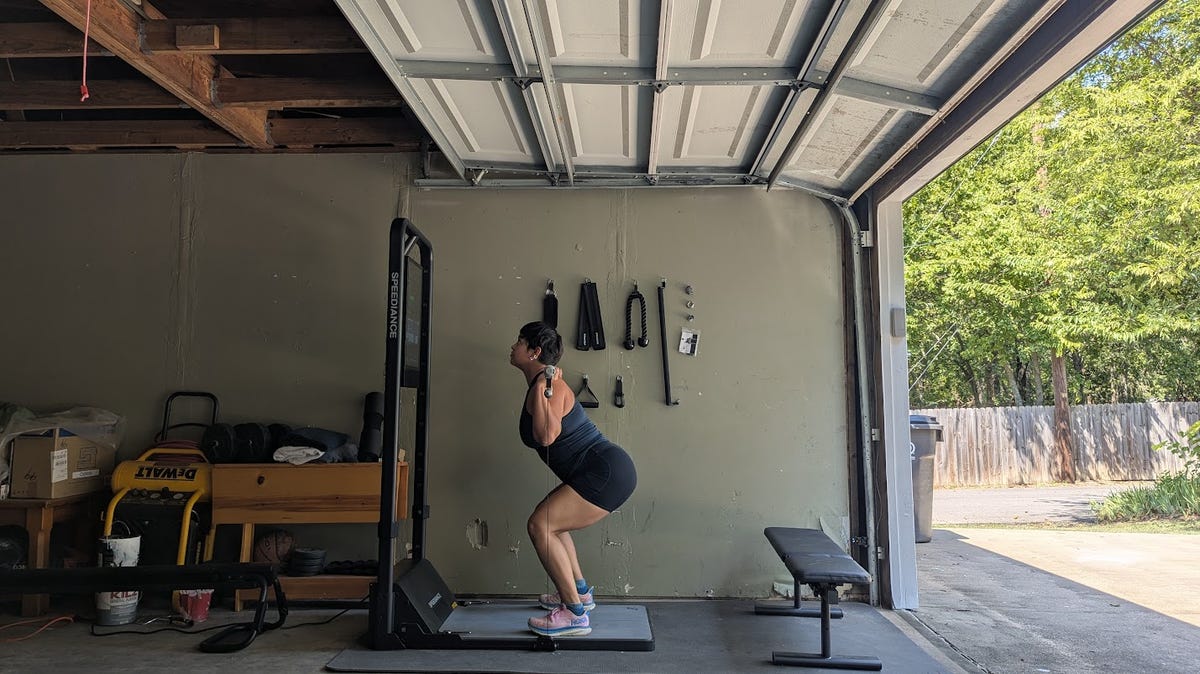Resistance training is fundamental for women’s health
Growing up, my mother showed me that weightlifting is for women every week as she lifted weights in our garage. As a toddler, I mimicked her strength training movements, which is why I now lift five days a week with the Speediance Gym Monster 2, an all-in-one workout system with a 220 lb. resistance level.
Strength training has always been a part of my life, but it’s still not for many women. According to the 2020 National Health Interview Survey, only 26.9% of women in the U.S. strength train, despite the health benefits it can offer. We spoke to experts who recommend that women of all ages should begin resistance training today.
The benefits
According to ACSM-CEP Clinical Exercise Physiologist Karen Owoc muscle loss begins for people in their 30s.
“For menopausal women, this age-related muscle loss is exacerbated due to the decline in estrogen levels, making it crucial for women between the ages of 45 and 55 to prioritize strength training to maintain muscle mass and strength,” Owoc says.
Building muscles contributes to better strength and balance, resulting in fewer injuries, as well an increase in cancer survivorship, reduced symptoms of depression and anxiety and extended cognitive function. And it’s good for the heart. A 2024 study published in “The Journal of the American College of Cardiology” found that women who strength train 2 to 3 times per week live longer and have a 30% reduction in cardiovascular mortality.
Jenny Liebl, a certified personal trainer and senior product developer at the International Sports Sciences Association says that strength training is equally as important for women under 40.
“The more muscle you have now, the better your metabolism, posture and joint stability will be later,” she says. “The earlier you start contributing, the bigger the payoff in your 50s, 60s and beyond.”
Fighting the myths
There are many reasons why so few women lift weights. For starters it can feel intimidating.
“Walking into the free-weight area of a gym can feel overwhelming if you do not know where to start,” Liebl says.
And then there are the myths.
“Many women still carry old beliefs about weight training, such as the fear of becoming ‘bulky’ or the idea that cardio is the best way to stay lean and healthy,” Liebl says.
Liebl says she lost 60 pounds in six months after she began weightlifting with a trainer almost two decades ago – and she’s not alone.
In 2024, Texas-based author Melania Luisa Marte, who was three years post-partum, had gained 20 pounds and was experiencing back, chest and chronic muscle pain.
“My usual routine of yoga and meditation was not cutting it like it used to,” she says.
A doctor suggested Marte build muscle, and after taking a HIIT class, her strength training journey began. “My body felt mine again,” Marte says.
Today, she uses dumbbells and weight machines which have improved her posture, increased muscle mass, and healed her body dysmorphia.
“Strength training has helped me lose thirty pounds and balance my hormones while also prioritizing my mental health. It has given me more stamina to run around with my now preschooler and be present in my body, mind and spirit,” Marte says.
How to strength train
The strength training world can be very intimidating, but Owoc explains that “strength training…can be modified, so anyone, regardless of their fitness experience, limitations, or level, can weight train.”
A trainer can be helpful in crafting a fitness regime.
“If you have never lifted before, learning proper form and technique is really important,” Liebl says. “Working with a qualified trainer, even for just a few sessions, can give you the skills and confidence you need to train safely and effectively.”
Owoc suggests that women start slow: “For beginners, strength train two to three days per week, then they can progress to three to four days per week, and depending on their goals, advance to four to five days per week.”
She suggests focusing on your core and explains that body weight exercises are equally as effective as dumbbells, resistance systems and weight machines.
“Once women understand that strength training is adaptable, effective, and one of the fastest ways to see positive changes in body composition, confidence, and overall health, they often wonder why they did not start sooner,” Liebl says.
